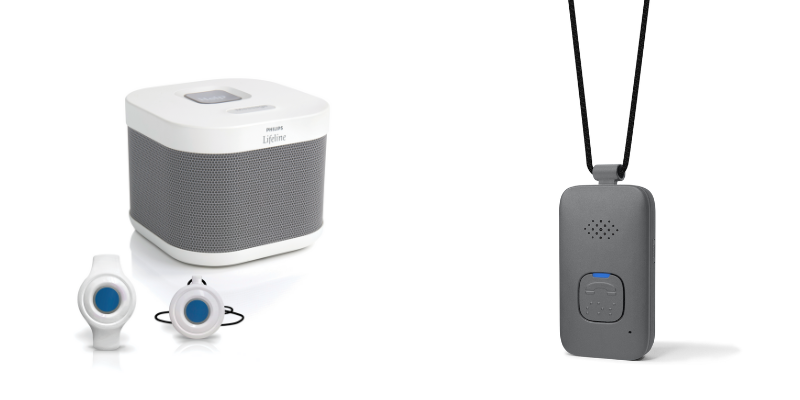Families are built on a foundation of love and support. As children, our parents watched us learn and grow with a careful eye, making sure we didn’t do anything that would cause us harm. As we age (alongside our parents), it may seem like some roles and responsibilities shift. As day-to-day activities become more challenging with age, the dynamic changes as we assist and support our parents. Caring for an older adult can be incredibly rewarding, but it can also present unique challenges.
For starters, the scrapes and bruises we experienced as children would heal quickly and we’d bounce back easily. Older adults, however, do not always share the same fortune. Their bodies don’t heal in the same way. For them, injuries can have life-altering consequences. Additionally, our parents, the ones who nurtured our independence for years, still cherish theirs and may not be so keen to give it up. They might find it difficult to accept your help as it can make them feel less independent. The shifting dynamics can cause a great deal of discomfort and negative feelings in older adults. So how do we make sure we can keep our parents safe, while also supporting their independence?
Let’s explore the complexities of caring for older adults and offer helpful tips and resources to navigate this important journey. We'll discuss the importance of open communication, explore the benefits of medical alert systems, and provide guidance on finding the right solution for your loved one.

What is a Medical Alert Service?
A medical alert system, also known as a personal emergency response system (PERS), is an easy-to-use system that can call for help even if you are unable to reach a phone. Typically, it includes a wearable pendant or wristband with a button that, when pressed, connects them to a 24/7 emergency response center. Many systems also offer features like fall detection, which can automatically send help if a fall is detected or mobile functionality which allows the wearer to live life safely and to the fullest, no matter where they are.Why Can Seniors be Hesitant About Wearing a Medical Alert Button?
It’s unfortunately all but too common for older adults to be hesitant about using a medical alert system. We often hear a senior say “I don’t need one yet” or “I’m still too young for one of those.” We often ask, “What would be the thing that would convince you to wear a Lifeline button?” We usually hear older adults say something along the lines of “a fall.” But, this line of thinking can be dangerous. As we know, falls are a leading cause of hospitalizations for older adults in Canada. They can bring with them life-changing consequences like loss of mobility due to hip fractures or other bodily injuries, or a loss of independence.
With long lie times after a fall playing such a strong factor in the likelihood of a full recovery post-injury, it makes sense to wear a medical alarm to help get immediate help should any issues arise. But still, even after all of this is explained, many older adults can still be hesitant. Here are a few common reasons:
Perceived Stigma
Many older adults feel that wearing a medical alert device signifies a loss of independence and highlights their vulnerability. We have had older adults tell us that wearing a medical alert button feels like they are wearing a sign that says “I'm old and vulnerable.”
Discomfort and Aesthetic Issues
Some might find the devices unattractive or uncomfortable, and worry that wearing it will be annoying in their day-to-day life. If someone likes wearing jewelry, they may also think that wearing a medical alert button will ruin their outfits.
Cost Concerns
For some, financial considerations may be a barrier to using this kind of service. Since seniors are often living on a fixed monthly income that can require them to stretch their money every month, a medical alert button can be perceived as an unnecessary extra expense.
Denial of Need
Lastly, an older may feel that agreeing to use a medical alarm device means being vulnerable and acknowledging their vulnerability or declining health.

How To Have The Conversation About Getting a Medical Alert Button
Approach The Subject With Empathy
Nobody wants to feel like they’re being told what to do or think. Treat your parents with respect and empathy, acknowledging their feelings and perspectives. Understand that this conversation is about ensuring their safety while maintaining their independence. Choose a calm and quiet setting. Let them know you want to discuss something important. Make sure to never make the conversation feel like they have no choice in the matter. Express your love and concern for their safety. And position the conversation to focus on the benefits of the service, not its limitations.
Discuss Benefits Over Limitations
Focus the conversation on explaining how a medical alert system can provide peace of mind for everyone (including family members and other caregivers). We often hear that wearing a Lifeline device does a lot for the well-being of the family members. They don’t have to spend as much time worrying if their loved one is ok. It also helps seniors stay independent for longer giving them the confidence to do more things in their day-to-day without the need for supervision or waiting for somebody else availability. They can be used in other non-medical situations like home invasions, fires, etc.
Address Their Fears
Their concerns are valid. But, at times they are driven by fear or misunderstanding. Listen to their concerns and offer factual reassurance. For example, explain that false alarms can be easily cancelled and that the monitoring staff are trained to handle such situations professionally. Address the misconception that using a medical alert means they will be visited less often.
Get Help From A Professional
If even after this conversation, your parent is still hesitant you can try suggesting that you both speak to a trusted healthcare provider or a senior resource worker or educator. For older adults, it can be difficult to listen to your children about these kinds of things. Often, a doctor’s recommendation can carry more weight and help reinforce the importance of having a medical alert system. Most are familiar with this kind of service and its benefits. Additionally, some services like Victoria Lifeline offer free one-on-one consultations where they can come talk to your parent with you. They are often more successful. We also have an assessment quiz that can be used as a tool in your conversation.
What Is the Best Medical Alert System For Seniors In Canada?
There's no one-size-fits-all answer, as the best system depends on individual needs and budget. Some people are more active and could benefit from a mobile system that allows them to stay safe and independent outside of the home. While others just need the basics. The good news is that many providers like Victoria Lifeline offer a wide variety of product offerings that meet a wide umbrella of needs. There are lots of resources online that go into the specific benefits and limitations of different services available on the market today. In addition to the quality of services, price is also a consideration. Some services like Victoria Lifeline offer subsidy programs or other discounts or promotions that can help make a medical alert service more affordable for lower-income individuals.
Open Communication and Working Together Are Key.
The key to a successful conversation about introducing a new healthcare tool like a medical alert button is empathy and preparation. Listen, address their concerns, and help them understand the benefits of this kind of device.
This article is meant to be informational and should not replace the advice of a trained healthcare professional. What works for some individuals, might be harmful to others. Consult a professional before making any significant changes.
Blog by: Maor Tsitrin, Marketing & Communications Assistant
